News
-
 Life
LifeFungi may be crucial to storing carbon in soil as the Earth warms
Fungi help soil-making bacteria churn out carbon compounds that are resilient to heat, keeping those compounds in the ground, a study suggests.
By Freda Kreier -
 Environment
EnvironmentCorals may store a surprising amount of microplastics in their skeletons
In tropical waters, coral reefs may be a “sink” for tiny bits of plastic debris. It’s unclear how corals’ trash pickup might affect reef health.
-
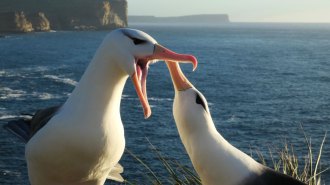 Life
LifeAlbatrosses divorce more often when ocean waters warm
In one part of the Falkland Islands, up to 8 percent of the famously faithful birds ditch partners in years when the ocean is warmer than average.
-
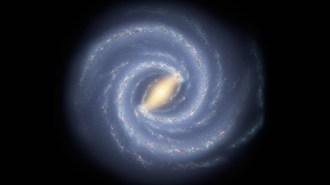 Astronomy
AstronomyAstronomers have found the Milky Way’s first known ‘feather’
Named for the glacier that feeds India’s longest river, the Gangotri wave spans up to 13,000 light-years and bridges two of our galaxy’s spiral arms.
-
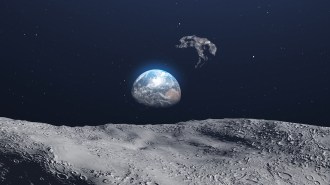 Space
SpaceA space rock called Kamoʻoalewa may be a piece of the moon
New observations reveal the possible origins of a mysterious object called Kamoʻoalewa. It could be the wreckage from an ancient impact on the moon.
-
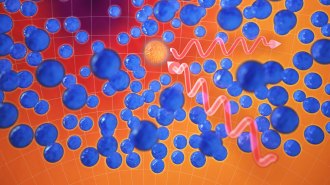 Quantum Physics
Quantum PhysicsScientists finally detected a quantum effect that blocks atoms from scattering light
When all available quantum states are full, atoms can’t scatter light, thanks to the Pauli exclusion principle, new experiments show.
-
 Climate
ClimateHow climate change may shape the world in the centuries to come
Climate projections need to be pushed long past the established benchmark of 2100, researchers argue.
-
 Climate
ClimateA new map shows where carbon needs to stay in nature to avoid climate disaster
Scientists have mapped the location of key natural carbon stores. Keeping these areas intact is crucial to fighting climate change.
-
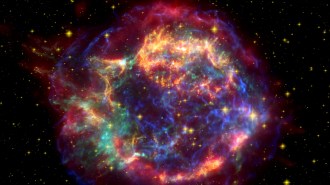 Astronomy
AstronomyHow massive stars in binary systems turn into carbon factories
A massive star with an orbiting partner star ejects on average twice as much carbon, an element crucial for life, into space compared with a solo star.
By Ken Croswell -
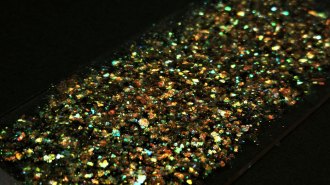 Chemistry
ChemistryThis eco-friendly glitter gets its color from plants, not plastic
Using cellulose extracted from wood pulp, researchers have created a greener alternative to traditional glitter.
-
 Science & Society
Science & SocietyHow missing data makes it harder to measure racial bias in policing
Police officers rarely record nonevents, such as drawing a gun without firing. Failing to account for that missing information can obscure racial bias.
By Sujata Gupta -
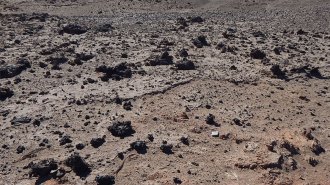 Space
SpaceAn ancient exploding comet may explain why glass litters part of Chile
A 75-kilometer-long corridor of chunks of glass in the Atacama Desert probably formed when a comet exploded 12,000 years ago, a study finds.
By Freda Kreier